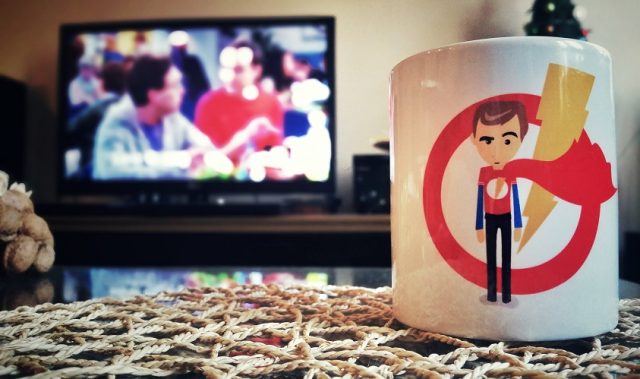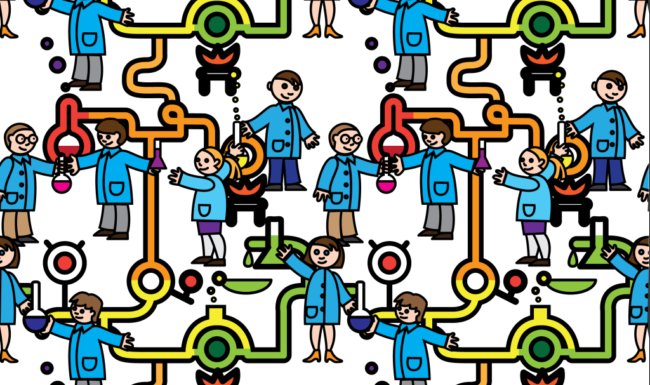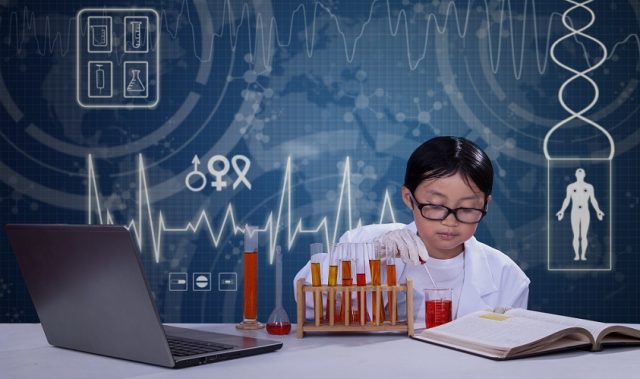
AsianScientist (Dec. 4, 2015) – As much as I’ve spent this column writing about how awesome scientists are and all the awesome skills we have, sometimes it does feel like we are somewhat useless.
I came to this conclusion because for the last few months I’ve been working on a manuscript and in that time, a giant hole outside of my office window has been transformed into a building. While we can argue that this says more about the time I’ve spent staring out of the window instead of working on the paper (heh), I felt that this was a disheartening illustration of how my lab life has resulted in missing out on some serious real-life skills.
“Not so fast!!!” exclaimed the tea room full of friends and colleagues when I expressed this sentiment to them. “You only think this because you haven’t been pushed to discover your useful life skills!”
Others assured me to think of the recent movie The Martian in which Matt Damon proceeds to “science the shit out of this” in order to survive being stranded on Mars. That’s all well and great in a movie, I said to them, but my training is microscopy and mass spectrometry! I haven’t undergone NASA training and I don’t have enough botany knowledge to know how to set up a field of potatoes on a planet where nothing grows.
While this then devolved into a discussion of which scientific field provided the *best* applicable life and survival skills, a professor calmly sidled up.
“You’re all looking at this the wrong way,” he said. “Don’t worry too much about specific skills—if you need to do it, you can build yourself a shelter. If NASA chooses to send you to Mars, they’ll teach you what you need. The more important thing is that you recognize your general science skills will allow you to survive on Earth.”
Memory bank
Most scientists have pretty good memories, especially for pieces of information that may seem random but are anything but in reality. Regardless of the field topic, chances are you were told some information that seemed interesting and it was filed away until the time you need it.
“For example, take yourself,” continued the Professor. “How many deadly spiders are there in Australia?”
“Well, there are lots of dangerous spiders but only two are deadly,” was my reply.
“And do you know which of those two are deadly?”
“Yes, the funnel-web and the redback, but no one has died from a bite in years because antivenom is available.”
“You banked that information and now so has everyone in this room.”
The nodding heads and relieved looks confirmed that this was the case.
Cautious personalities
Scientists are taught to doubt everything they do. That piece of data that seems too good to be true? Do it again (and again) to prove that it wasn’t a fluke! That piece of data that doesn’t match your hypothesis? Do it again (and again) to prove that it was wrong, not your hypothesis! By this token, scientists tend to do things in the real world only once it’s been proven to work.
At the same time, once something has been proven to work, scientists may not want to deviate from this. Some friends once stayed in the countryside where the owner of the inn brought them milk directly from the cow. As soon as the owner left, two people immediately said, “That milk needs to be boiled before we use it!” You bet your life those people who were concerned about pasteurisation were scientists!
Fine motor control
Scientists don’t have the greatest reputation as being the most physically co-ordinated profession out there. I don’t know why given all the time we spend doing fine movements like pipetting, tweaking wires or sitting extremely still to not disturb the machinery. This ability to control the smallest movements of our limbs can surprisingly come in handy.
A pair of very good friends, a robotics postdoc and a surgeon, once visited me during a festival. Naturally we decided to play some shooting carnival games. Despite never having held a gun before in their lives, their steady and controlled hands proceeded to hit all those little targets and win us some fluffy toys.
Nerves of steel
From steady scientific hands, we move onto scientific nerves of steel. A typical lab-based scientist will have to do all manner of dangerous and difficult tasks as part of their daily work. Be near powerful magnets and lasers? Not a problem. Handling hazardous chemicals? Piece of cake. When the time comes to have to stare down our fear of mice and put our hand into the cage, it will be done.
“So don’t worry about it too much,” concluded the professor. “It may seem that you and other scientists have skills that may seem useless on face value, but when the Zombie Apocalypse comes, I know that you will be able to recall what to do and how to avoid them. If that doesn’t work, trust in your physical abilities, gather your courage, and give it a headshot.”
And with that inspirational message, he sauntered away.
But if anyone wants to upskill their ability to survive, NASA will be accepting applications for new astronauts from December 14!
This article is from a monthly column called The Sometimes Serious Scientist. Click here to see the other articles in this series.
———
Source: Asian Scientist Magazine; Photo: popculturegeek/Flickr/CC.
Disclaimer: This article does not necessarily reflect the views of AsianScientist or its staff.













